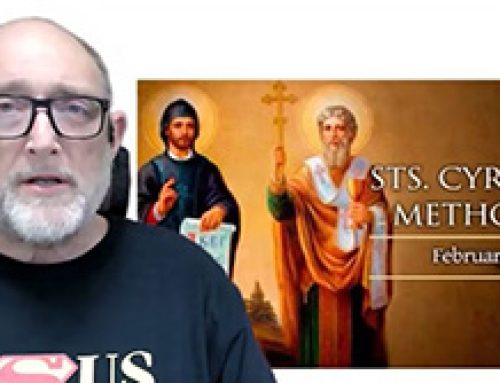Today, Dr Madeline Beveridge, Pastoral Projects Leader from the Diocese of Lismore, reads from the Gospel of Luke (14: 1-6) in which the Pharisees take Jesus to task about healing on the Sabbath.
Madeline says in today’s Gospel we see Jesus at a Pharisee’s house on the Sabbath. When a man suffering from dropsy is brought before Him, the religious leaders remain silent about whether healing on the Sabbath is lawful. Jesus then heals the man and asks a simple, vivid question: if a child or an ox fell into a well on the Sabbath, would anyone hesitate to rescue it? Their inability to answer reveals a deeper misunderstanding of the Sabbath’s purpose.
The Church teaches that the Sabbath is not a legalistic barrier but a day meant for the good of humanity. By healing the afflicted man, Jesus demonstrates that saving life is the highest expression of Sabbath observance.
When we focus on rules without seeing the human person behind them, we risk becoming the very “foxes” that Jesus confronts. Modern examples if this include insisting on strict schedules that prevent us from visiting a sick neighbor, or refusing to help a colleague because it “interrupts” a planned agenda. The Gospel invites us to ask ourselves: What would I do if a loved one were in danger right now? The answer should be immediate compassion, not a pause for “rules.”
Madeline invites us to choose a practical situation this week where a small act of mercy can be offered on a “Sabbath‑like” day of rest or routine. It might be:
· Calling a friend who is struggling and offering to pray or simply listen,
· Helping a neighbor to carry groceries when the store is closed, or
· Volunteering a few minutes at a parish outreach program even if it falls on a day you had planned for personal leisure.
By intentionally placing another’s need before our own schedule, we embody the spirit of the Sabbath that Jesus models— a day that “does good” and “saves life.”






Leave A Comment